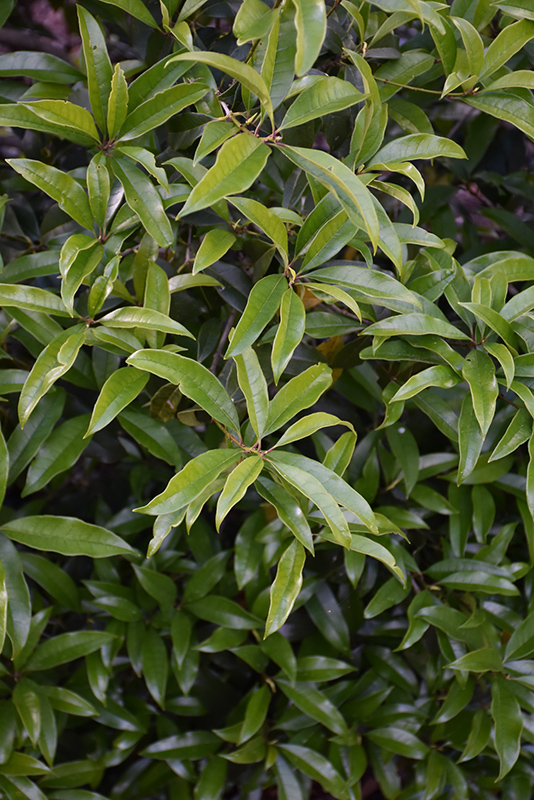Apricot Gold Fragrant Tea Olive
Description
The profusely blooming and sweetly fragrant peach-orange flowers makes this variety very appealing; fall flowers in large clusters on the stems; may rebloom in spring; a great garden or container plant that takes pruning well
Landscape Attributes
Apricot Gold Fragrant Tea Olive is a dense multi-stemmed evergreen shrub with a shapely oval form. Its average texture blends into the landscape, but can be balanced by one or two finer or coarser trees or shrubs for an effective composition.
Apricot Gold Fragrant Tea Olive is recommended for the following landscape applications;
Planting & Growing
Apricot Gold Fragrant Tea Olive will grow to be about 12 feet tall at maturity, with a spread of 8 feet. It has a low canopy with a typical clearance of 1 foot from the ground, and is suitable for planting under power lines. It grows at a medium rate, and under ideal conditions can be expected to live for 40 years or more.
This shrub does best in full sun to partial shade. It does best in average to evenly moist conditions, but will not tolerate standing water. It is not particular as to soil type or pH. It is highly tolerant of urban pollution and will even thrive in inner city environments. This is a selected variety of a species not originally from North America.
Apricot Gold Fragrant Tea Olive makes a fine choice for the outdoor landscape, but it is also well-suited for use in outdoor pots and containers. Because of its height, it is often used as a 'thriller' in the 'spiller-thriller-filler' container combination; plant it near the center of the pot, surrounded by smaller plants and those that spill over the edges. It is even sizeable enough that it can be grown alone in a suitable container. Note that when grown in a container, it may not perform exactly as indicated on the tag - this is to be expected. Also note that when growing plants in outdoor containers and baskets, they may require more frequent waterings than they would in the yard or garden. Be aware that in our climate, this plant may be too tender to survive the winter if left outdoors in a container. Contact our experts for more information on how to protect it over the winter months.

